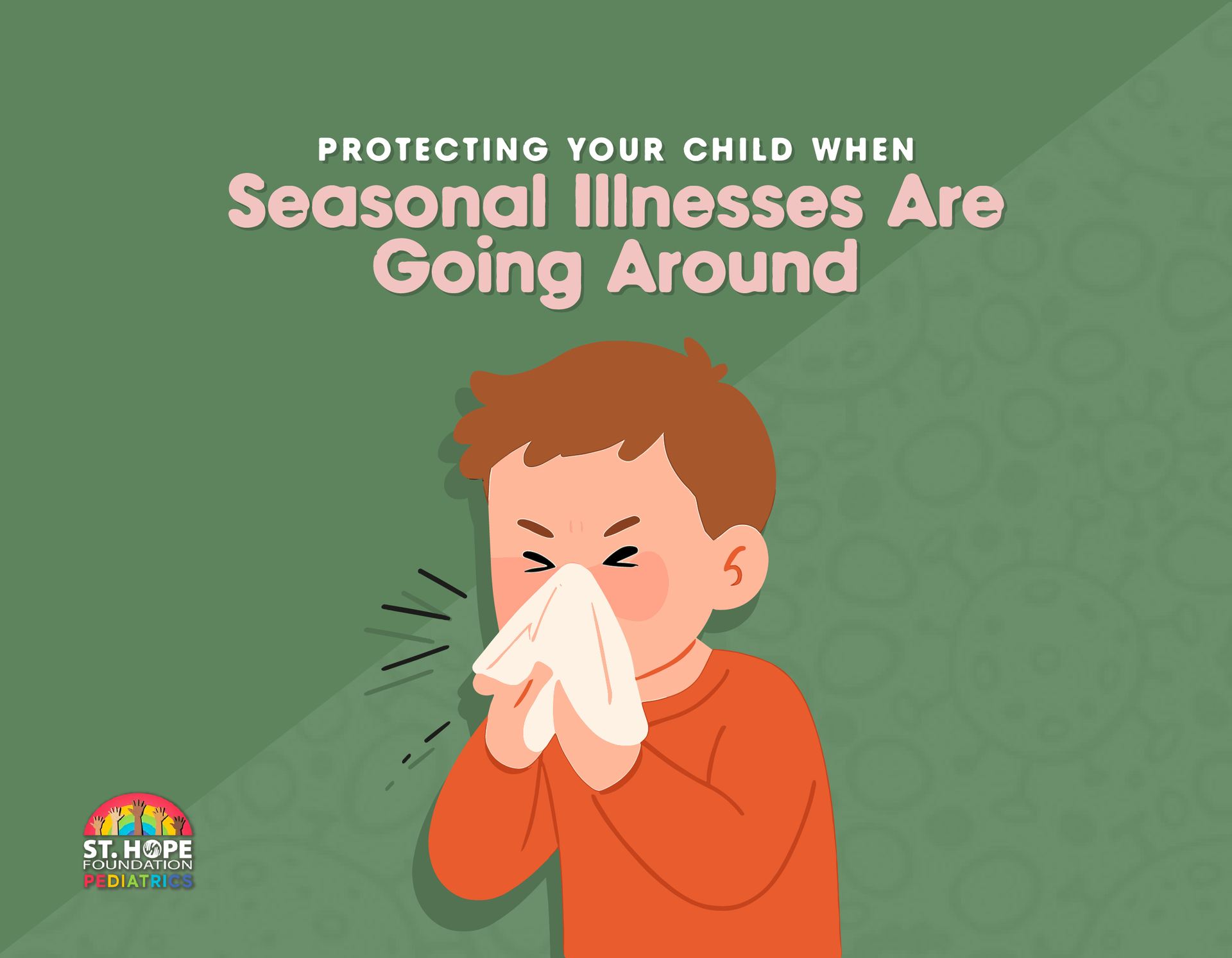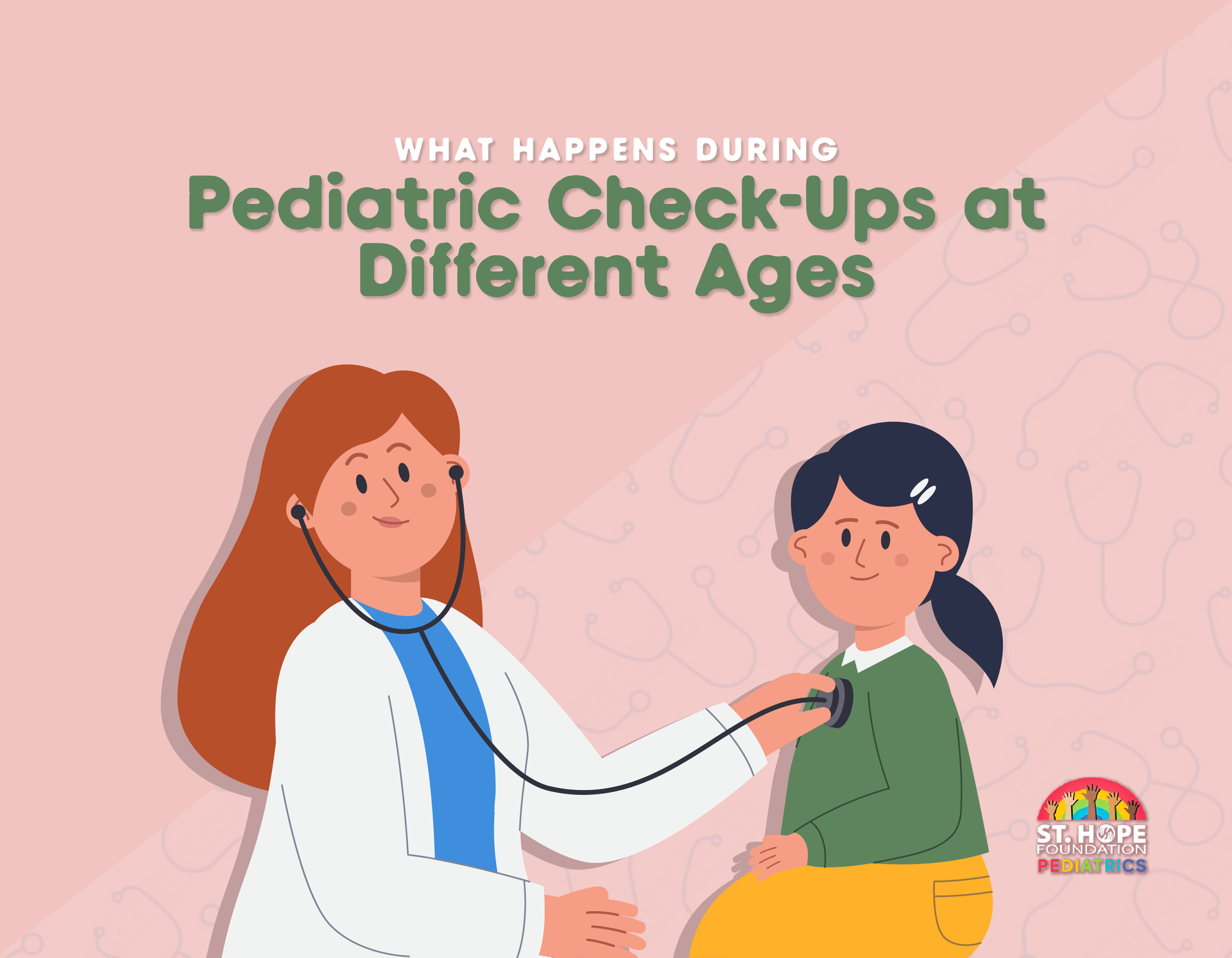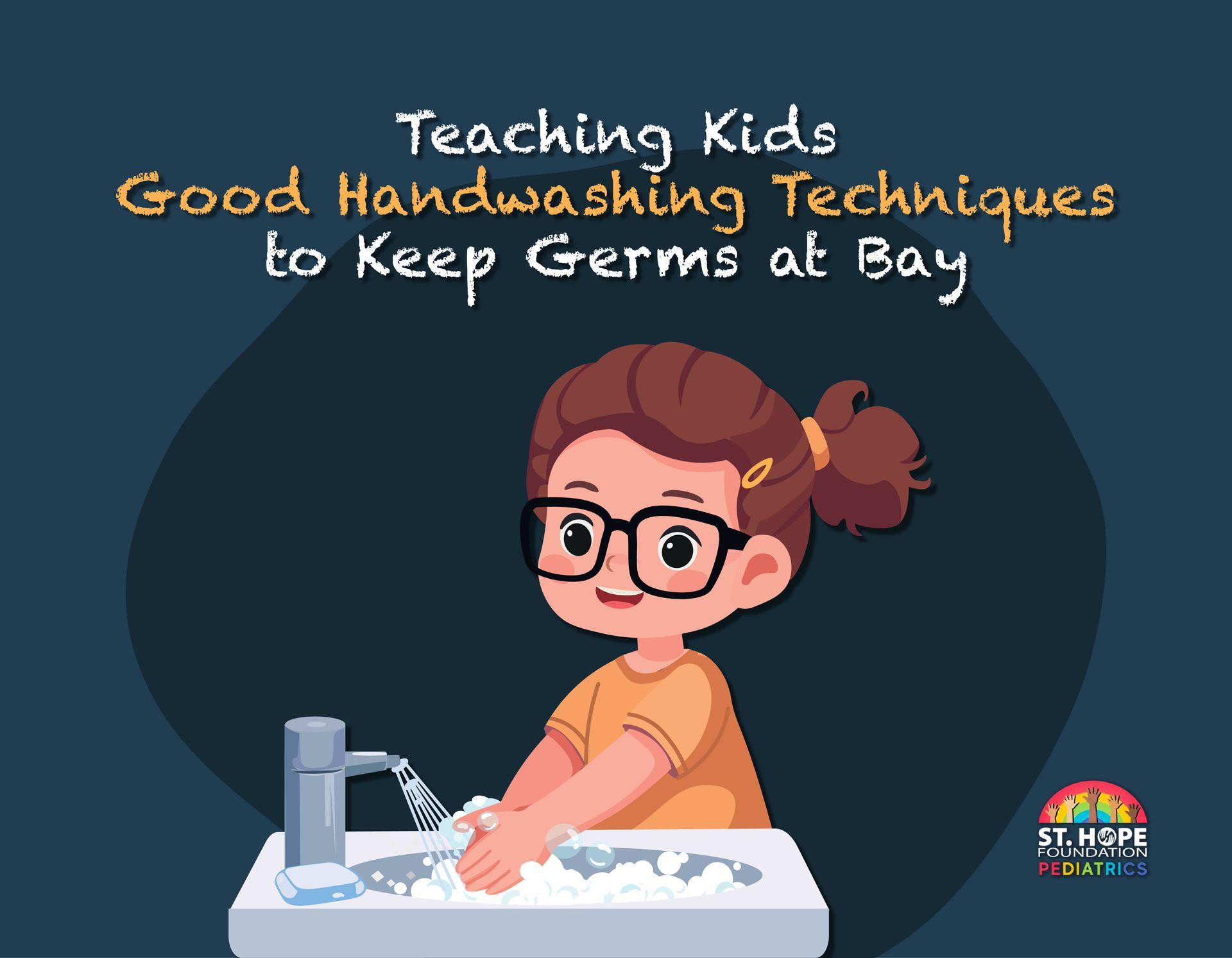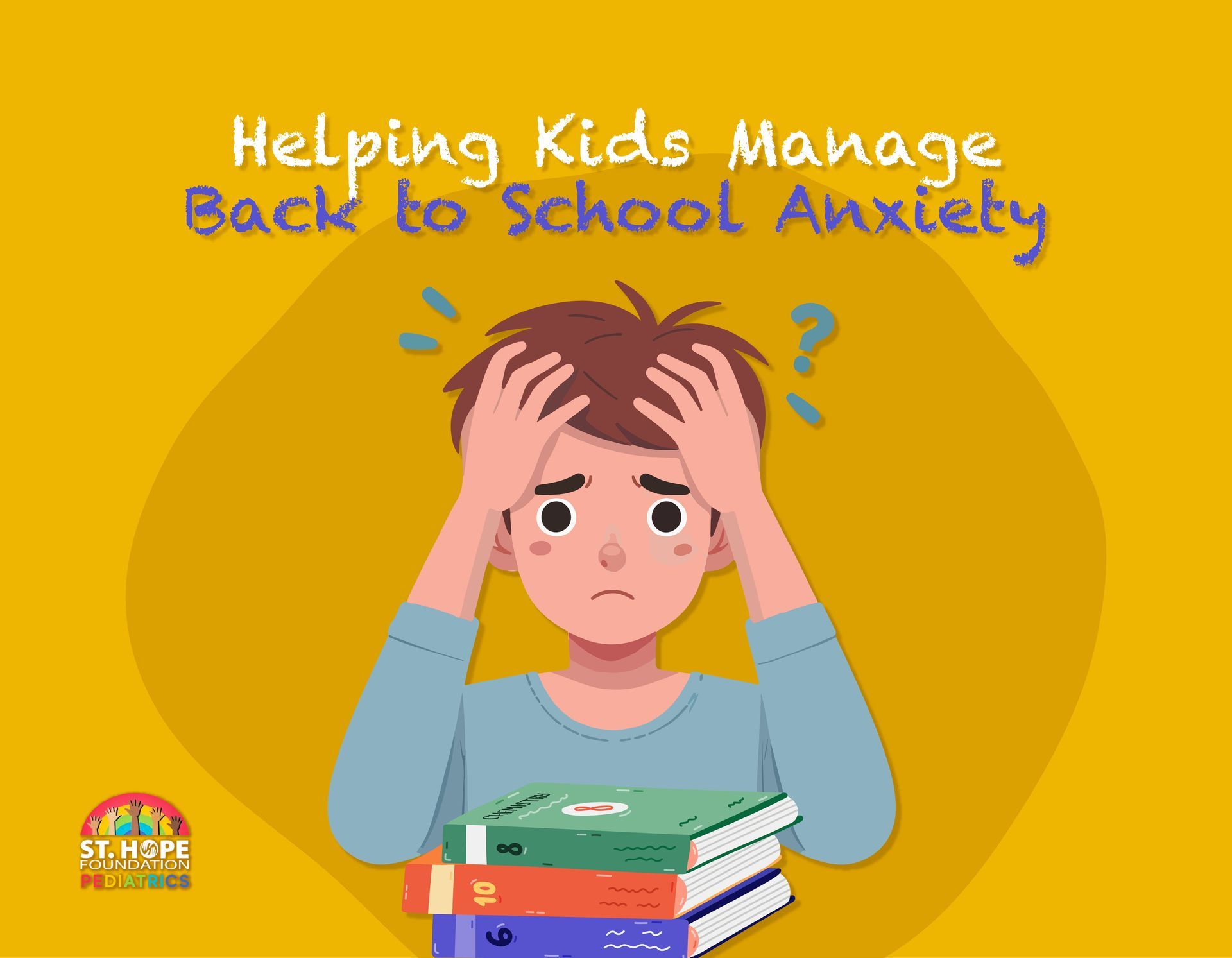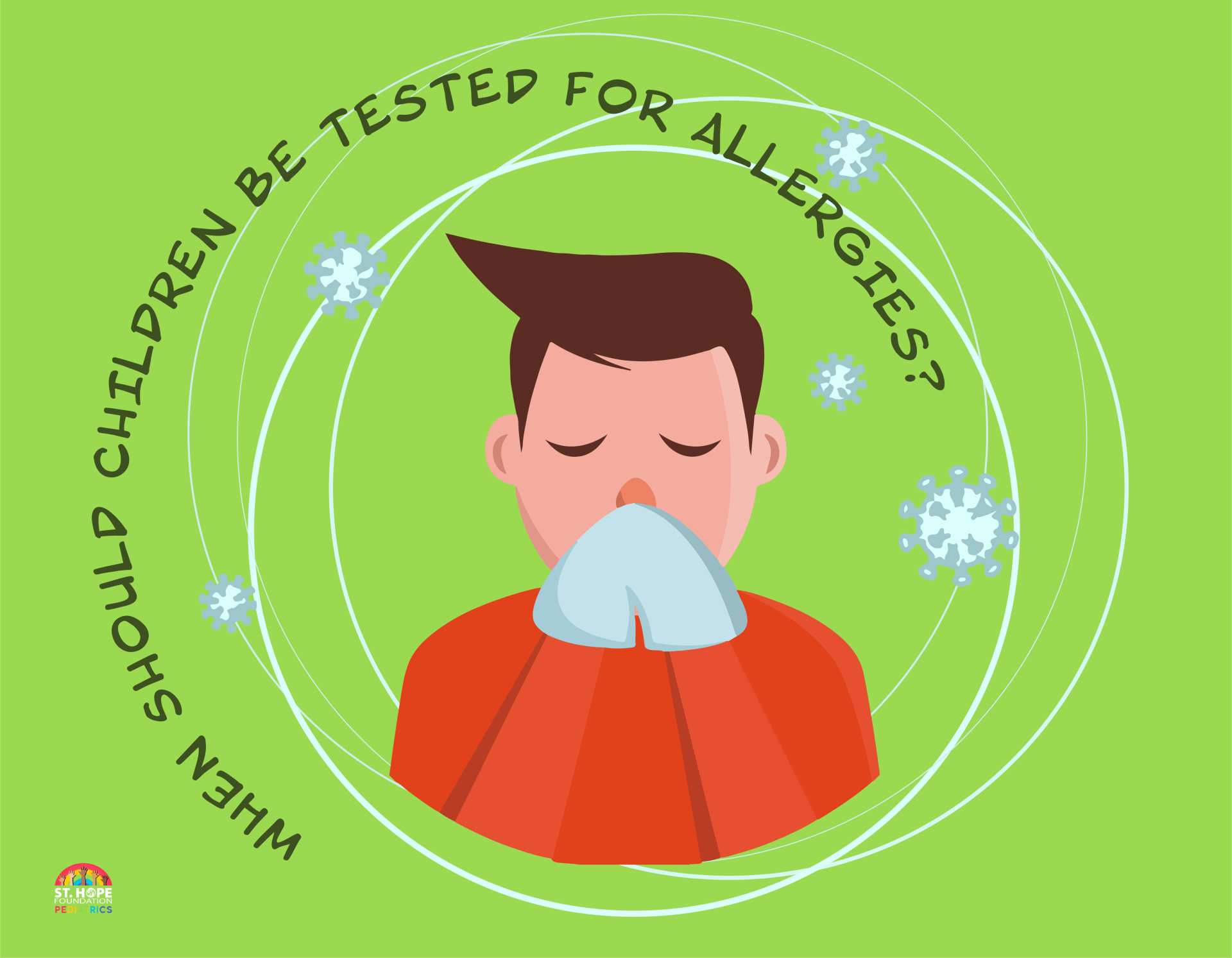
Children exhibiting allergy symptoms can be safely tested for allergies if they are at least six months old. Allergy symptoms are similar to side effects of colds and other minor ailments, which is why it’s likely in your best interest to speak with your family’s pediatric doctor prior to assuming your child is suffering from allergies.
If your child seems to be frequently exhibiting allergy symptoms, you may want to make note of the onset time, duration and specific details like what your child ate or where they played. Those details could help allergists pinpoint what might have triggered the event.
What Are Common Food Allergies for Children?
- Peanuts
- Tree nuts
- Cow milk
- Eggs
- Soy
- Wheat
- Fish
- Shellfish
While these are some of the more common food allergens for children, this is not an exhaustive list. It is also worth mentioning that children may be allergic to pollen, pet dander, medications and many other non-food allergens.
What Are the Symptoms of Allergies?
- Hives
- Vomiting
- Diarrhea
- Cramps
- Swelling
- Rash or eczema
- Swollen mouth, lips or tongue
- Difficulty breathing
- Wheezing
- Decreased blood pressure
What Kind of Children’s Allergy Testing Is Available?
Skin Prick Allergy Test
The skin allergy test is one of the most widely used. For this test, a small amount of one or more allergens will be placed on your child’s arm. Next, their skin will be pricked with a needle, so the allergen can enter. If your child has an allergy, he or she will form a red bump where pricked. One of the benefits of the skin allergy test is the ability to test multiple allergens at once. This allergy test does not take very long, and the results come back almost immediately.
Intradermal Allergy Test
During an intradermal allergy test, an allergen will be injected into the patient’s skin. After around 20 minutes, the patient’s skin is examined for hives, swelling, rashes or any other markings at the injection site. Intradermal allergy testing is typically more accurate than skin prick allergy tests.
Allergy Blood Test
Allergy blood tests measure one’s levels of the IgE (immunoglobulin E) antibody in the blood. The immune system creates immunoglobulin E antibodies to attack allergens, which it considers a threat. The antibodies cause the allergy symptoms.
Allergy blood testing may be used to measure either the total levels of immunoglobulin E or simply how much IgE is produced in response to a particular allergen.
Food Allergy Test
Another way to test for food allergies is exposing a child to specific foods and monitoring their body’s response. Medical experts recommend that parents only perform this type of food testing in the pediatrician’s office so the doctor can quickly intervene if necessary.
Should My Child Avoid Allergy Testing?
If you believe your child has allergies, testing for the allergies is likely a good idea. The more important question is if your child should avoid a particular type of testing. For instance, skin allergy tests are not ideal for kids with eczema, rashes or other skin conditions that limit the skin available for testing.
Another consideration is whether your child is taking any medications that could interfere with the results of the test. If that is the case, it might be possible to have the child temporarily stop taking the medication to get it out of their system before an allergy test is performed.
Depending on your child’s condition, stopping medications may not be a feasible option. Speaking with your child’s pediatrician and the team at St. Hope Pediatrics can help you make an informed decision.
How Can I Treat My Child’s Allergies?
Once allergies have been officially diagnosed, you should discuss treatment plans with your pediatrician. It is possible for children to grow out of certain allergies, in which case the best course of action may be to avoid the allergen for the time being and have them retested in the future.
Immunotherapy (allergy shots) or over-the-counter allergy medications may also be an effective treatment plan for some children, especially those with seasonal allergies.
Your pediatrician may also have advice on helping your child enjoy a fulfilling life despite allergies. For example, if your child is allergic to pollen you can choose to vacation at the beach where pollen counts are low. You can find many guides online for the best travel destinations if you or a family member suffer from allergies.
There are a number of things parents can do on a regular basis to make life more bearable for children with allergies. Keep them inside on windy days when the pollen count is high. Invest in HEPA filtration for your home’s HVAC system, use dehumidifiers in their room and wash their clothes and have them take a shower or bath after playing outside on high-pollen-count days.
Get Help Managing Childhood Allergies in Houston
The team at St. Hope Foundation Pediatrics is dedicated to keeping Houston’s kids happy and healthy. Seeing your child suffer from a chronic condition like allergies can be frustrating, which is why our pediatricians are committed to providing workable solutions to help them live a normal life with minimal allergy symptoms.
Schedule an appointment today by calling (713) 778-1300.

